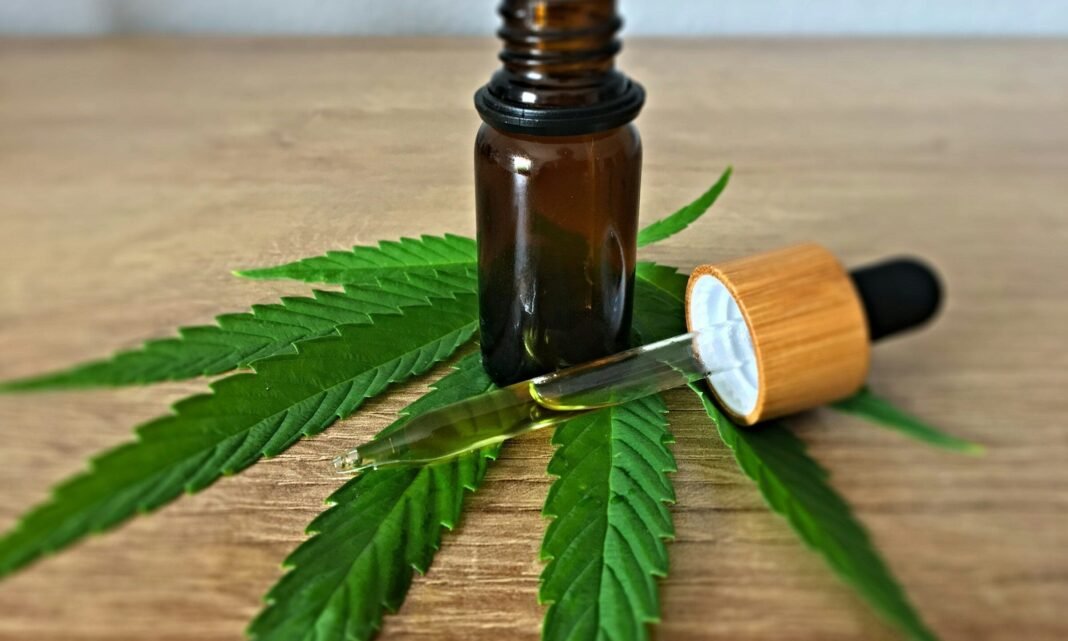A new review of the medical literature showing marijuana’s component CBD in topical application concluded that cannabidiol shows great promise.
Published in Biomolecules journal, the paper found the compound to have “antiinflammatory, antioxidants antibacterial analgesic properties that contributes its therapeutic potency in treating skin diseases mediated by inflammation and immunity, as well as promoting skin rejuvenation hydration protection from oxidative or environmental damage.”
It also says that the cannabis component “shows promising results in treating skin cancers such as Kaposi Sarcoma, Melanoma and other pigmentation disorders like melasma or vitiligo.”
It is important to note that, according to the authors, “current evidence indicates that skin irritation and allergic reactions are rare when used for short periods of time.”
CBD has emerged as an agent that is multifunctional in dermatology, cosmetics and science.
They said that as research and innovation continues, CBD may be a valuable, well-integrated, active ingredient for dermatological, cosmetic, and oral care therapies.
This paper states that further research is needed in areas such as sensitive skin, men’s grooming, and post-procedure recovery.
The authors concluded that there is evidence to support CBD’s efficacy “in managing acne, scalp psoriasis and atopic dermatitis.”
According to the study, these compounds could be used to treat dermatological problems, including acne, scarring, skin protection, and aging. Topical and transdermal CBD products have also attracted increasing research attention due to potential therapeutic benefits.
The authors, affiliated with the George Emil Palade University of Medicine, Pharmacy, Science and Technology of Târgu Mureș in Romania, studied several scientific advancements in dermatological applications. The authors noted that CBD exhibits different biologic effects on skin, which are mediated by its interaction with the Endocannabinoid System and multiple molecular target.
They warned, however, that “despite CBD’s potential therapeutic benefits, its use in dermatology remains limited by a number of factors,” including “suboptimal physical-chemical properties, limited transdermal permeability, lack of standard formulations, and variations in regulatory frameworks.” The researchers added, “Safety concerns persist and more robust clinical data is needed.”
The regulatory system is also behind. In the U.S., the 2018 Farm Bill made hemp-derived CBD legal. However, the Food and Drug Administration has not yet issued clear guidelines on skincare and cosmetics. The FDA has not approved most CBD products and there are few reliable studies on the new skin-care applications of CBD.
The authors noted that “Due its lipophilic nature, and its poor solubility in water, CBD is difficult to deliver on the skin’s surface and through transdermal application, which limits its penetration.”
In spite of these limitations, the authors note that CBD-based topical formulations are likely to benefit from recent advances in formulation technology. The paper states that novel delivery systems have been developed to improve CBD’s penetration into the skin and its stability. This could help “overcome CBD’s poor water solubility and lipophilicity, and ensure more effective delivery of CBD to targeted skin layers.”
The product enhances skin renewal by decreasing oxidative stress, and improving collagen and moisture.”
“Innovative formulation technologies are crucial for unlocking the full potential of CBD in skincare…overcoming challenges related to solubility, stability, and skin penetration, advanced delivery systems and synergistic combinations yield more effective and targeted CBD products,” the study concluded. The study concluded that “continued research is essential for validating these innovations, and ensuring their safe application based on science.”
The group also warns against “potentially false claims” about CBD’s therapeutic effects. It is becoming more important to look into the evidence behind such claims. This can be done by reviewing the new and existing landscape of topical products based on cannabis.
As to the need for more standardized studies, they authors write that “there remains a need for robust, large-scale clinical trials to validate the efficacy and safety of CBD in dermatological applications… Many commercial formulations lack standardization, and product labelling often fails to accurately reflect cannabinoid content or purity, leading to diminished consumer trust and increased regulatory concerns.”
The CBD skin care sector presents numerous opportunities, they said. “Niche markets…present opportunities for targeted product development. CBD is a multifunctional ingredient with anti-inflammatory properties and analgesic effects.
Relatedly, a 2024 scientific literature review published in the journal Molecules explored the “collaborative interactions” of various chemical compounds in marijuana—including cannabinoids, terpenes and flavonoids—arguing that a better understanding of the components’ combined effects “is crucial for unraveling cannabis’s complete therapeutic potential.”




